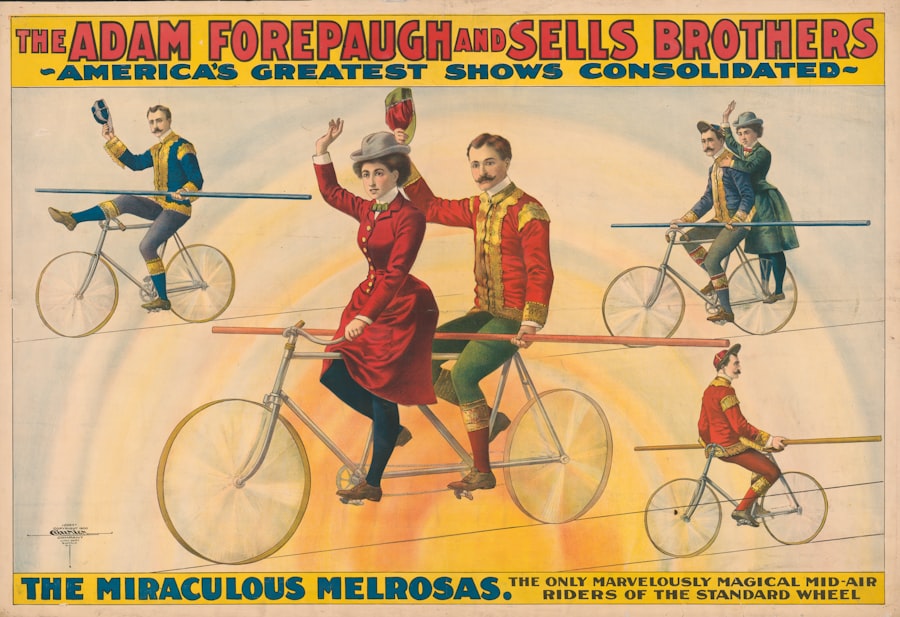Sports promotions wield significant influence in the realm of athletics, serving as a bridge between teams and their fan bases. These promotional strategies are not merely marketing tools; they are essential components that enhance the overall experience of attending a game. By creating excitement and anticipation, sports promotions can transform a mundane event into a memorable occasion.
For instance, promotional giveaways such as bobbleheads, jerseys, or tickets to future games can draw larger crowds, as fans are often motivated by the prospect of receiving something tangible in return for their attendance. This dynamic not only boosts ticket sales but also fosters a sense of loyalty among fans, who feel appreciated and valued by their teams. Moreover, the impact of sports promotions extends beyond the immediate financial benefits.
They play a crucial role in building community engagement and fostering a sense of belonging among fans. When teams host themed nights or special events, they create an inclusive atmosphere that encourages fans to come together and celebrate their shared passion for the sport. For example, a local baseball team might host a “Hometown Heroes” night, honoring local first responders and military personnel.
Such initiatives not only elevate the game day experience but also strengthen the bond between the team and the community, reinforcing the idea that sports are not just about competition but also about connection and camaraderie.
Key Takeaways
- Sports promotions enhance fan engagement and create memorable game day experiences.
- Tailgate promotions and social media campaigns effectively boost fan interaction.
- Game day specials drive increased sales and customer participation.
- Building team spirit through promotions strengthens community and loyalty.
- Innovative promotional events are key to maximizing revenue and shaping the future of sports marketing.
Creating a Winning Game Day Atmosphere
The game day atmosphere is pivotal in shaping the overall experience for fans attending sporting events. A vibrant and engaging environment can elevate the excitement levels, making each game feel like a special occasion. Teams often invest in various elements to enhance this atmosphere, including pre-game festivities, live music, and interactive fan zones.
For instance, many stadiums now feature entertainment areas where fans can participate in games, meet mascots, or enjoy food from local vendors before the main event begins. This not only keeps fans entertained but also encourages them to arrive early, increasing overall attendance and engagement. In addition to physical enhancements, the emotional tone set by the team and its staff plays a significant role in creating a winning atmosphere.
Cheerleaders, mascots, and announcers contribute to the energy in the stadium, rallying fans to cheer louder and engage more deeply with the game. The use of music and sound effects at critical moments—such as during player introductions or after a home run—can amplify excitement and create lasting memories for attendees. Furthermore, incorporating fan participation through chants or coordinated cheers can foster a sense of unity among spectators, making them feel like an integral part of the game rather than just passive observers.
Engaging Fans with Tailgate Promotions

Tailgating has become an integral part of the sports culture in many regions, particularly in American football. The pre-game ritual of gathering in parking lots to grill food, play games, and socialize has evolved into a vibrant community event that enhances the overall game day experience. Teams have recognized this trend and have begun to implement tailgate promotions that encourage fan engagement before the game even starts.
For example, some organizations host tailgate competitions where fans can showcase their grilling skills or creativity in decorating their tailgate setups. Prizes such as free tickets or exclusive merchandise can incentivize participation and foster a sense of camaraderie among fans. Moreover, tailgate promotions can serve as an excellent platform for sponsors to connect with fans.
Brands often set up booths or sponsor activities that align with their products or services, providing samples or giveaways that resonate with the tailgating experience. For instance, a beverage company might offer free samples of their latest drink while hosting games that allow fans to win branded merchandise. This not only enhances the tailgating experience but also creates valuable touchpoints for brands looking to engage with a captive audience.
By integrating promotions into tailgating culture, teams can create a more immersive experience that extends beyond the confines of the stadium.
Leveraging Social Media for Game Day Promos
| Metric | Description | Example Value | Impact on Game Day Promos |
|---|---|---|---|
| Engagement Rate | Percentage of audience interacting with posts (likes, comments, shares) | 7.5% | Higher engagement increases promo visibility and fan participation |
| Reach | Number of unique users who see the promo content | 150,000 | Broader reach drives more awareness and potential attendees |
| Click-Through Rate (CTR) | Percentage of users clicking on promo links | 3.2% | Indicates effectiveness of call-to-action in driving traffic |
| Hashtag Usage | Number of times promo-specific hashtags are used | 4,500 | Boosts organic promotion and community engagement |
| Conversion Rate | Percentage of social media users who redeem promo offers | 12% | Measures success in turning engagement into actual promo redemptions |
| Post Frequency | Number of promo-related posts made on game day | 8 posts | Maintains audience interest and keeps promo top-of-mind |
| Influencer Collaborations | Number of influencers promoting the game day offers | 3 influencers | Expands reach to targeted fan segments and adds credibility |
In today’s digital age, social media has become an indispensable tool for sports promotions. Teams leverage platforms like Twitter, Instagram, and Facebook to reach fans directly and create buzz around upcoming games and events. By crafting engaging content—such as behind-the-scenes videos, player interviews, or interactive polls—teams can generate excitement leading up to game day.
For instance, a basketball team might post a countdown to tip-off featuring highlights from previous games or player spotlights that encourage fans to share their own predictions for the match. This not only keeps fans engaged but also fosters a sense of community as they interact with each other online. Additionally, social media provides an avenue for real-time promotions during games.
Teams can run contests or giveaways that encourage fans to post photos or videos from their seats using specific hashtags. This not only amplifies fan engagement but also creates a digital scrapbook of memories associated with each game. For example, a hockey team might encourage fans to share their best game day selfies for a chance to win signed merchandise or VIP experiences.
By harnessing the power of social media, teams can create a dynamic promotional landscape that enhances fan interaction both inside and outside the stadium.
Boosting Sales with Game Day Specials
Game day specials are an effective way for teams to boost sales while enhancing the overall fan experience. These promotions can take various forms, from discounted concessions to exclusive merchandise deals available only on game days. For instance, offering a “family pack” deal that includes tickets and food at a reduced price can attract larger groups and encourage families to attend games together.
This not only increases ticket sales but also drives revenue from concessions as families are more likely to purchase food and drinks while at the game. Moreover, teams can collaborate with local businesses to create unique game day specials that benefit both parties. For example, a local restaurant might offer discounts to fans wearing team apparel on game days, while the team promotes this partnership through its marketing channels.
This symbiotic relationship not only boosts sales for both entities but also strengthens community ties by encouraging fans to support local businesses while enjoying their favorite sport. By strategically implementing game day specials, teams can create an enticing atmosphere that encourages spending while simultaneously enhancing fan satisfaction.
Building Team Spirit with Sports Promotions

Sports promotions play a vital role in cultivating team spirit among fans and players alike. When teams engage in promotional activities that celebrate their history or highlight key players, they foster a sense of pride and loyalty within their fan base. For example, hosting “Legends Night” where former players return to honor their contributions can evoke nostalgia among long-time fans while educating newer supporters about the team’s legacy.
Such events not only celebrate past achievements but also reinforce the idea that being part of the fan community is about shared history and collective identity. Additionally, promotional campaigns that encourage fan participation—such as voting for player awards or selecting game themes—can further enhance team spirit. When fans feel that their voices matter in shaping the team’s narrative or experience, they develop a deeper emotional connection to the organization.
This connection is crucial for building long-term loyalty; when fans feel invested in their team’s journey, they are more likely to support them through thick and thin. By prioritizing promotions that foster team spirit, organizations can cultivate a passionate fan base that rallies behind their team both on and off the field.
Maximizing Game Day Revenue with Promotional Events
Promotional events are key drivers of revenue on game days, offering teams opportunities to engage fans while generating additional income streams. These events can range from pre-game concerts featuring popular local bands to post-game fireworks displays that keep fans in the stadium longer. By creating an enticing lineup of activities surrounding the main event, teams can encourage higher attendance rates and increase overall spending per fan.
For instance, hosting a celebrity meet-and-greet before a game can attract more attendees who are eager for unique experiences beyond just watching the game. Furthermore, promotional events can be tailored to specific demographics within the fan base to maximize appeal. For example, family-friendly events featuring kid-friendly activities such as face painting or bounce houses can draw in younger audiences while providing parents with an enjoyable outing for their children.
Similarly, themed nights—such as “Throwback Night” where fans are encouraged to wear retro jerseys—can create excitement around nostalgia while boosting merchandise sales related to those themes. By strategically planning promotional events that cater to diverse audiences, teams can optimize revenue generation while enhancing the overall game day experience.
The Future of Sports Promotions
As technology continues to evolve at an unprecedented pace, the future of sports promotions is poised for transformation. Innovations such as augmented reality (AR) and virtual reality (VR) are beginning to find their way into sports marketing strategies, offering immersive experiences that engage fans like never before. For instance, teams could implement AR features within their mobile apps that allow fans to view player stats or historical highlights by simply pointing their phones at certain areas within the stadium.
This level of interactivity not only enhances engagement but also provides valuable data on fan preferences and behaviors. Moreover, data analytics will play an increasingly critical role in shaping promotional strategies moving forward. By leveraging insights gathered from ticket sales, social media interactions, and fan feedback, teams can tailor promotions more effectively to meet audience demands.
Personalized marketing campaigns that target specific segments of the fan base will become more prevalent as organizations strive to create unique experiences for each individual supporter. As technology continues to advance and consumer expectations evolve, sports promotions will need to adapt accordingly—embracing innovation while remaining rooted in the core values of community engagement and fan loyalty that have always defined sports culture.



